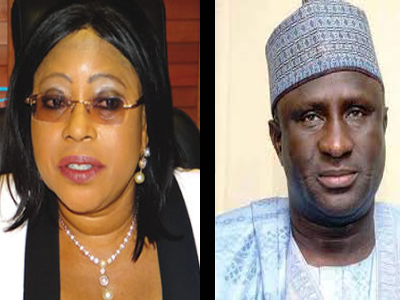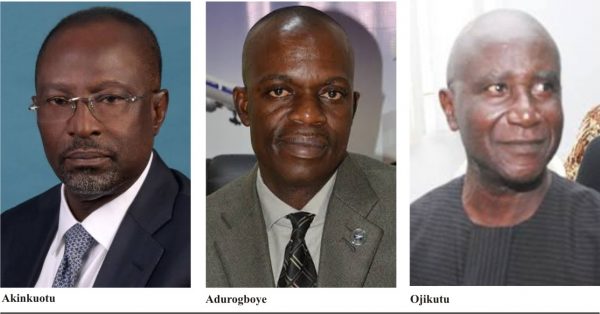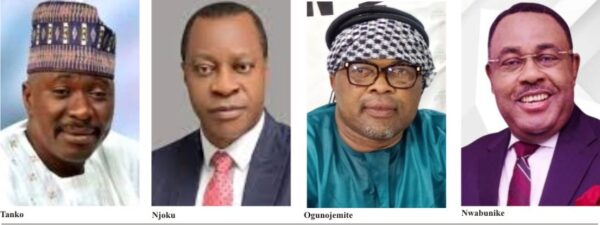Varying Interpretations Trail New Customs Duties On Vehicles
By Yusuf Odejobi
One of the notable changes in the new Finance Act signed into law by President Muhammadu Buhari is the reduction in Customs levy on vehicles and this should have taken effect from January 1st, 2021. However, almost seven weeks later, port stakeholders, automobile dealers as well as officers of Nigeria Customs Service (NCS) are yet to come to grips with the dictates of the new fiscal policy.
There are growing concerns that the reduction in duties or levies on new cars will be a negation to the federal government’s policy of growing manufacturing as several indigenous operators have invested massively in building and assembling cars and other kinds of vehicles.
Meanwhile, the controversy is further exacerbated by Ministry of Finance which is yet to explain which category of cars will enjoy the reduction in duties.
The new Finance Act has five strategic objectives, which include: raising government revenue through various fiscal measures, reforming domestic tax laws to align with global best practice, promoting fiscal equity by mitigating instances of regressive taxation, supporting small business entities in line with Ease of Business Reforms and introducing tax incentives for investments in infrastructure and capital market.
Although the Act has not been implemented, divergent views by vehicle dealers, automobile assembling investors, freight agents and the entire mobile industry have trailed the slash on duty and import levies.
In the Finance Act, the Federal Government proposes reduction in duties on tractors from 35 to 10 percent; from 35 to 10 percent on vehicles for transportation of goods; and 35 to five percent on vehicles for transportation of persons.
Many see this decision by the Federal Government as a disincentive to prospective and existing investors that want to venture into local manufacturing of vehicles in the country while some others hailed the idea, stating it will boost the economy.
At Nigeria Economic Summit (NES#26) last year November, Vice President Yemi Osinbajo had defended the Federal Government’s decision to slash duty on imported vehicles. He explained that it was not an attempt by government to kill the automobile industry, but to reduce the cost of transportation in the face of growing economic challenges.
He explained further that the decision was taken to enable more means of transportation available in the country to help move the people and not a policy to mull efforts of investors in local production of vehicles in the automobile industry
The Vice President argued that the annual demand for vehicles in the country at the time stood at about 720,000 against actual local production of about 14,000 which implies that the country would not realize the national need if vehicles were not imported.
In 2017, less than 7,000 brand-new vehicles were imported into Nigeria. Corporate organizations which are the largest buyers of new vehicles have reduced or postponed purchases, thereby extending the replacement cycle of their fleet from four to seven years.
In 2019, used passenger cars constituted the largest export item from the United States to Nigeria ($667 million) according to the U.S. Census Bureau.
This surge in importation of used vehicles in Nigeria can be attributed to the e-hailing car service. Today, the likes of Uber, Bolt, OgaTaxi, and many others have spread over major commercial cities across the country which has brought healthy competition in the ride-hailing industry.
Although, in recent times, the federal government had placed high import tariff to discourage imports to encourage locally assembled cars, car imports have continued to rise as National Automotive Design and Development Council (NADDC) stated that the country spends about $8 billion each year on imported vehicles, an indication of threat to car assemblers.
In 2020, as a mark of relative success, the government commissioned $1 billion worth of locally-assembled vehicles it said were made by 17 companies. According to NADDC, there are 31 licensed producers of cars, trucks and buses currently operating in Nigeria with a combined installed capacity of 205,000 vehicles a year. However, only nine of the assemblers are active due to huge funding, infrastructure and capacity gaps.
Speaking on the slashed import duties for vehicles recently, the Chief Executive of GIG Group, Mr. Chidi Ajaere faulted the sudden change in policy, alleging that it was done without proper consultation.
According to him, this would send a wrong message to prospective investors in the sector. Rather than the reduction in import duty on imported vehicles, the federal government should however bring out policy that would attract investors into the local manufacturing of vehicles, he argued.
He revealed that following the announcement of an earlier policy to encourage private sector investment in local manufacturing of automobiles, GIG Group went into partnership with some foreign investors and has spent over N5billion of private funds, without any loan from the banks, to build a vehicle assembly plant.
Meanwhile, speaking with MMS Plus newspaper, the National President, African Association of Professional Freight Forwarders and Logistics of Nigeria (APFFLON), Frank Ogunojemite also lampooned the policy, corroborating that the policy would harm the ailing local automobile industry, thereby creating more unemployment problems due to lower activities by automobile plants.
His words: “The government should try to emphasize how to develop the general economy of the country, not just to wake up one day and make strange laws. If government wants to reduce duties on some vehicles, they should take care of indigenous manufacturers and motor dealers who have imported their goods into the country at exorbitant costs, otherwise their businesses will collapse.”
He advised the Federal Government to also extend the same gesture to ambulances and other essential medical equipment, to help boost the health services especially in the face of the COVID-I9 pandemic
The General Manager, Ports and Terminal Multiservices Limited (PTML), Mr. Babatunde Keshiro told our correspondent that it wouldn’t be possible to measure the impact of the fiscal policy until it is clearly interpreted and implemented.
“The rate or customs duty is one thing and ex-factory price is another thing. That’s the reality people are not getting to know or take into consideration. At the end of the day it’s what the customs defines to be the ex-factory price that the 35 percent or 10 percent duty would hinge on. At the end of the day, the ex-factory price will eventually determine the value. That’s the price upon which the duty amount is to be established, but how will the ex-factory price be determined,” he inquired.
According to the port operator, the frequent change in foreign exchange rates is another factor that could affect the implementation of the fiscal policy when it takes-off.
Meanwhile, the Custom National Public Relations Officer, Joseph Attah, stated that the service was still awaiting the directives from Finance Ministry on the policy.
These new rates, according to him, have not been communicated to the Customs officially.
“What we have been saying is that once this is communicated to us officially, we will implement it then we will talk about it,” he told MMS Plus.
Also speaking, a car dealer in Festac Town, Lagos, Mr. Chukwunonso Ezeani, expressed fears that the customs agents would still continue to frustrate importers despite paying the reduced customs levy.
He lamented the strategy of Customs officers raiding car marts across the country over suspicion of harbouring smuggled vehicles when in reality the vehicles were released duly by the officers at several ports.
“Is it not the same Customs that cleared those cars that are intercepted after leaving the ports, on the highways or even at the car marts? Why would Federal Operations Units (FOU) and other Customs departments keep frustrating our business? Customs will clear your vehicle at the Lagos ports, but when you take the same vehicle to the East, the same Customs would be questioning your particulars. Why do we have such practice?” He asked.
This new policy remains a strange one in dire need of clarity and questions will continue to pop up until they are addressed.
As the federal government continues to campaign for ease of doing business in the country even as the realities of the African Continental Free Trade Area (AfCFTA) emerge, this new fiscal policy will have to be interpreted tactfully taking into cognizance importers, car dealers, automobile investors and the entire automobile industry.








